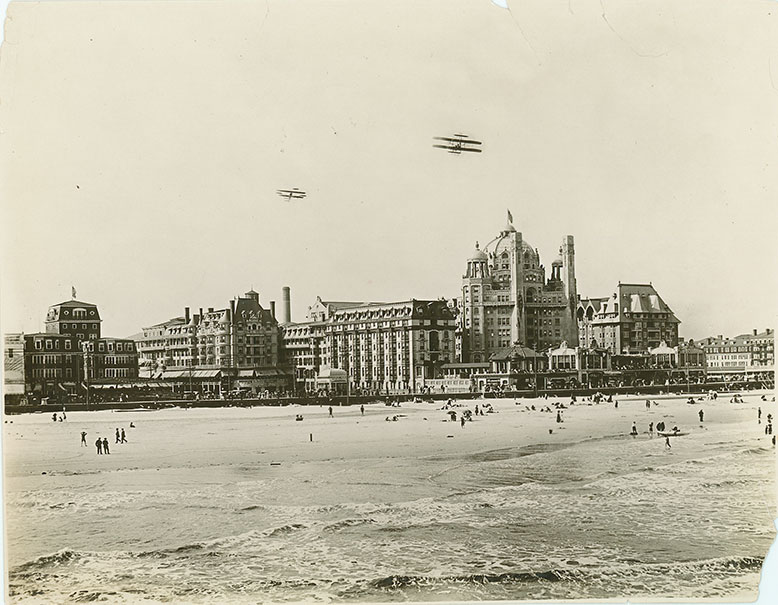
When spectators start staking out their places on the beach in Atlantic City as early as 7 am on August 22, they won’t be watching for the sunrise. Instead, they’ll be waiting for the liftoff of the 16th annual Atlantic City Airshow, a showcase of aerial excellence and precision flying.
Between 400,000 and 450,000 people are expected for the free, rain-or-shine event, says Joe Kelly, president of the Greater Atlantic City Chamber of Commerce. The show can also can be seen from parts of Brigantine, Ventnor and Ocean City.
Among those scheduled to perform are the U.S. Air Force Thunderbirds, the U.S. Army Golden Knights Parachute Team, and the Canadian Forces Snowbirds, a military aerobatics team. The day will include skydiving, skywriting, and demonstration flights by classic aircraft, including the P-51 Mustang, a World War II/Korean War-era fighter-bomber.
“It’s one act after another, starting at 11 am until nearly 4 pm,” says Kelly. “What makes it unique is it’s held over the ocean.”

Biplanes fly over Atlantic City at the 1910 Air Carnival. Courtesy of the Atlantic City Free Public Library
The show—also known as Thunder Over the Boardwalk—has its roots in Atlantic City aviation history. The city’s Bader Field, which opened in 1910, was the first facility to be known as an airport. After making the first solo flight over the Atlantic, Charles Lindbergh flew his plane, the Spirit of St. Louis, to Bader Field in October 1927 during a national tour to promote aviation.
In 1910, the city hosted its first air show, the Atlantic City Air Carnival, and attracted an estimated 100,000 spectators. Aviation pioneer Glenn Curtiss set a record for a continuous flight by shuttling 50 miles back and forth over the beach in just over 70 minutes.
These days, the air show is making history of its own. Atlantic Cape Community College has estimated the show provides a $26 million boost to the city and $33 million to the region, according to Kelly.



